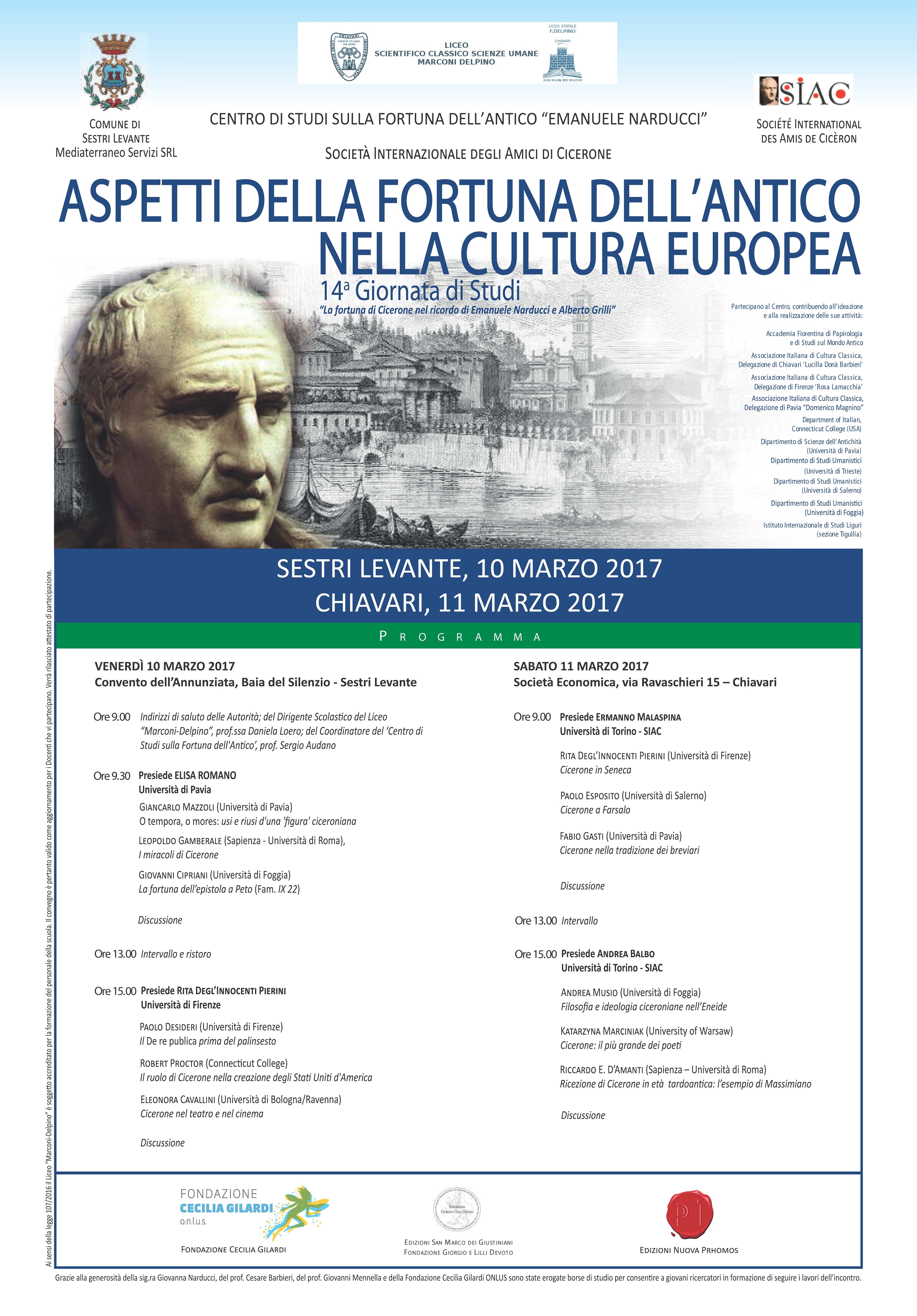Cicerone – il più grande dei poeti - Cicero, the Greatest of Poets
DOI:
https://doi.org/10.13135/2532-5353/2826Abstract
Riassunto Marco Tullio Cicerone “gode” della fama di poetastro, o meglio del più grande grafomane della storia della poesia, l’incarnazione assoluta di tutti i peccati possibili contro le Muse. Scopo del presente contributo è mettere in discussione questo stereotipo. A partire da una rassegna delle opinioni più importanti che sono state formulate sui versi ciceroniani, si indagheranno le radici delle critiche addensatesi sulla poesia di Marco Tullio. Risulta in questo senso determinante l’incidenza dello sfondo politico-religioso sotteso alla poesia ciceroniana. Essa può così recuperare il suo ruolo nel programma culturale, di cui scrive Emanuele Narducci nel Cicerone e l’eloquenza romana. Retorica e progetto culturale (1997): Cicerone assicura una longue durée alle sue idee mediante la letteratura. Nel corso dell’analisi viene quindi dimostrato come l’Arpinate, per mezzo dei suoi carmi, ci abbia trasmesso la propria immagine di dux togatus, che viene affiancata da una visione della “Repubblica perfetta” e dall’idea di pace. Alla luce di queste osservazioni, viene analizzato l’ambiguo carme 49 di Catullo, in modo tale da evidenziare come una seria e attenta riconsiderazione del caso di Cicerone-poeta ci consenta di vedere in una luce nuova, se non addirittura di risolvere, alcuni enigmi della letteratura latina.
Abstract Marcus Tullius Cicero “enjoys” the reputation of a poetaster, or the greatest graphomaniac in the history of poetry – the absolute embodiment of all the possible sins against the Muses. The aim of this article is to question this stereotype. First, an analysis of the most important opinions on the value of his verses is undertaken to identify the roots of these criticisms. As a result, the political and religious background of Ciceronian poetry is revealed, and his poems regain their importance in Cicero’s cultural program as described by Emanuele Narducci in Cicerone e l’eloquenza romana. Retorica e progetto culturale (1997). This program consisted in Cicero’s assuring a longue durée to his ideas through literature. I show how the Arpinate, through his poetry, transmitted his own image as dux togatus together with his vision of an ideal Republic and the concept of peace. Finally, on this backdrop, the ambiguous poem 49 of Catullus is analyzed in order to demonstrate how a serious and careful reconsideration of the case of Cicero the poet allows us to see in a new light, if not to solve, a famous enigma of Latin literature.
Downloads
Downloads
Published
How to Cite
Issue
Section
License
Authors who publish with this journal agree to the following terms:
- Authors retain copyright and grant the journal right of first publication with the work simultaneously licensed under a Creative Commons Attribution License that allows others to share the work with an acknowledgement of the work's authorship and initial publication in this journal.
- Authors are able to enter into separate, additional contractual arrangements for the non-exclusive distribution of the journal's published version of the work (e.g., post it to an institutional repository or publish it in a book), with an acknowledgement of its initial publication in this journal.


 Ciceroniana On Line is recognised by ANVUR (the National Agency for the Evaluation of the University System and Research) as a CLASS A journal for the Sciences of Antiquity, Philology, Literature and History of Art (
Ciceroniana On Line is recognised by ANVUR (the National Agency for the Evaluation of the University System and Research) as a CLASS A journal for the Sciences of Antiquity, Philology, Literature and History of Art ( The journal is included in DOAJ. The DOAJ listing of the journals is available at
The journal is included in DOAJ. The DOAJ listing of the journals is available at  The journal is indexed in
The journal is indexed in  The journal has been included in ERIH PLUS. The ERIH PLUS listing of the journals is available at
The journal has been included in ERIH PLUS. The ERIH PLUS listing of the journals is available at 

